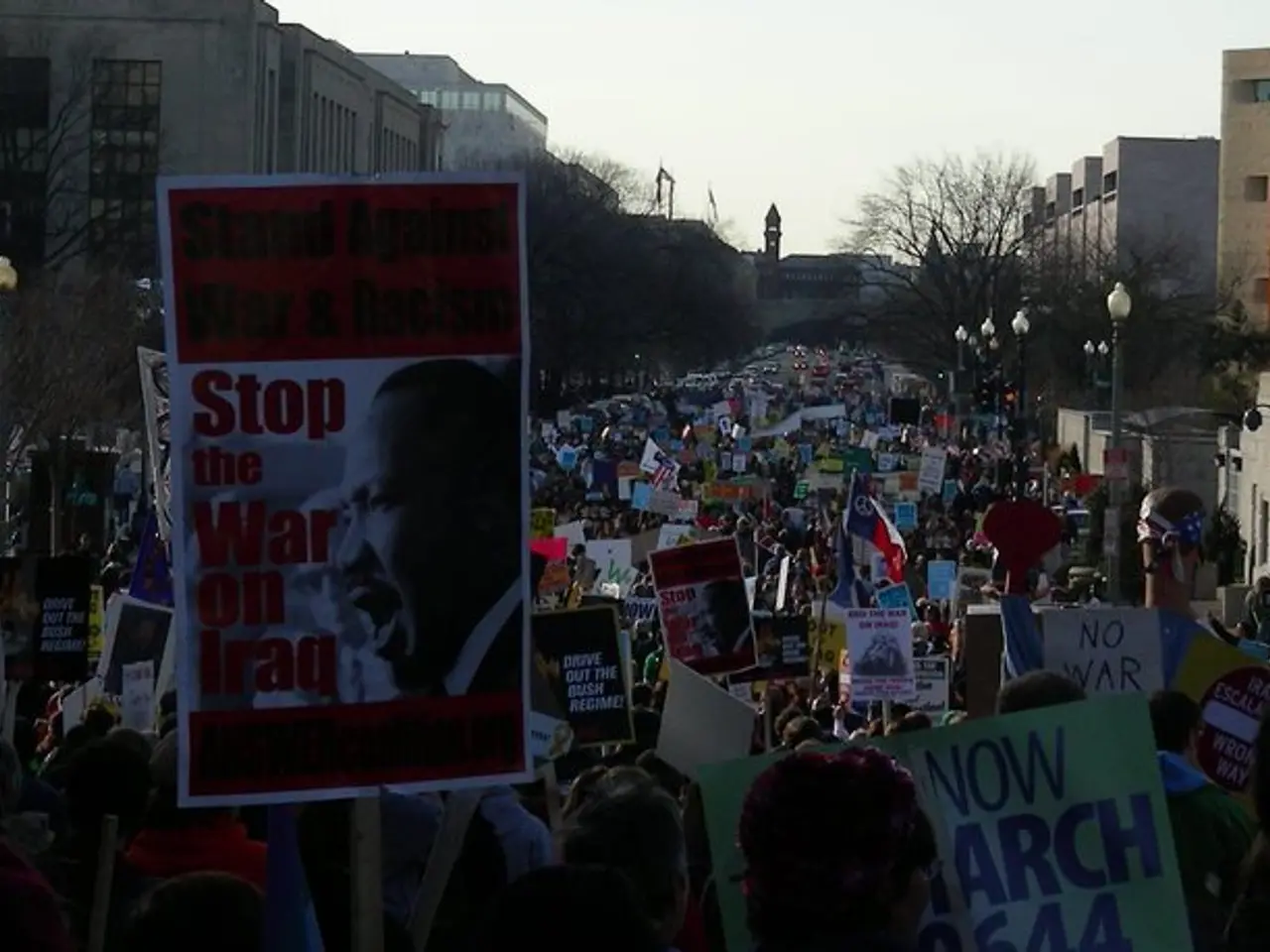War in Ukraine: EU Sanctions and Russia's Adaptations
Russia Stands Firm: No Compulsion for Negotiations
In the ongoing conflict between Ukraine and Russia, there's little hope for peace as the Kremlin brushes off the proposed 18th round of sanctions by the European Union. Dmitry Peskov, Kremlin spokesman, expressed confidence that these sanctions will ultimately be adopted but will merely trigger a stronger backlash, according to statements made to Moscow state television.
Peskov views sanctions as a double-edged sword, which Russia has already learned to navigate. He referred to EU's previous abandoning of Russian raw materials as self-inflicted wounds. The frustrations surrounding the sanctions stalled the adoption of the 18th package back in June, with Slovakia leading the resistance. A new vote has yet to be scheduled.
Russia considers the sanctions illegal and has been successful in minimizing their effects. The EU's sanctions primarily target Russia's economy, aiming to deprive the country of the financial means to continue the invasion of Ukraine. However, Russia has developed countermeasures.
Russia has diversified its trade partners, strengthened ties with non-Western countries like China, India, and other Asian, Middle Eastern, and African nations. Additionally, it has implemented import substitution policies to reduce reliance on Western imports. To circumvent restrictions on international banking and financial services, Russia has promoted the use of alternative payment systems and cryptocurrencies. Despite EU efforts to restrict oil and gas imports, Russia has sought to redirect these to other markets. Lastly, the Russian government has intervened heavily in supporting key sectors and companies during the sanctions.
In coordination with the EU and G7, Ukraine has aligned its sanctions regime with international partners. This ensures Ukraine adopts partner-approved sanctions swiftly and engages government agencies in their implementation. The EU has extended its sectoral sanctions against Russia’s economy for an additional six months, sustaining economic pressure.
However, the EU has faced internal challenges in sanction implementation, with Slovakia and Hungary vetoing an 18th sanctions package targeting Russia's energy and banking sectors. This reflects some resistance among member states to deepen sanctions further at this time.
In conclusion, the EU continues to maintain and extend rigorous sanctions against Russia, with the latest 17th package in place and international efforts ongoing. Russia has responded by adapting its economy through diversified trade partners, import substitution, and alternative financial channels. As the war in Ukraine persists, the full effectiveness and consequences of these adaptations continue to unfold.
Amidst the ongoing war-and-conflicts in Ukraine, the politics surrounding the EU's sanctions against Russia have become a major general-news topic. Russia has been adapting to the sanctions by diversifying its trade partners, implementing import substitution policies, promoting alternative payment systems, and redirecting oil and gas imports.








